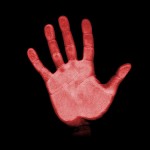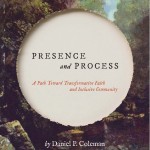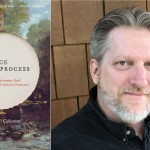![]()
I spent 20+ years as a charismatic Christian. We not only believed in miracles (such as miraculous physical healings, resurrections, controlling the weather, etc.) but we prayed for them all the time. I was part of a “ministry team” trained to do this stuff. The thing is, if I’m honest, I can’t say I ever saw anything that was really and truly miraculous. We heard lots of stories–lots of anecdotes about someone who knew someone who experienced something–and we accepted those stories as real because we so wanted them to be real.
A few years ago I asked a question of my friends on Facebook: Have you experienced a miracle?
I basically got three types of responses:
1) Yes, life itself is a miracle (in other words, diluting the definition of “miracle” to where it was meaningless).
2) Yes, I know someone/heard of someone who experienced something (an anecdote–not direct personal experience).
3) Yes, I had a (vague or minor) condition and it was healed (not really miraculous–maybe divine healing, maybe placebo effect, maybe attributable to medical treatment, maybe just gradual natural healing).
There were those cases where someone had a serious condition which ultimately went away and they chose to attribute the healing to divine intervention rather than the mysteries of the human body or medical intervention. But first-hand accounts of missing limbs growing back, actual blindness healed, serious conditions (like cancer) instantaneously (and verifiably) cured apart from accompanying medical treatment, real dead people raised?
Nada.
The problem, I’ve concluded, was that we looked at the biblical accounts of Jesus and his disciples performing miracles and we took them at face value and earnestly tried (with great faith!) to replicate them. I later learned that in the 1st century Greco-Roman world the only understandable way to express divinity was through power: power over sickness, power over the elements, power over “demons,” power over enemies, power over death. No claim to divinity or divine favor could be accepted (or even expressed) without claims to the miraculous.
As David Litwa wrote in his excellent book, ‘Iesus Deus: The Early Christian Depiction of Jesus as a Mediterranean God‘:
Jesus’ divinity may have existed before our world began–but (given our historical existence) the notion of his divinity had to be conceived and propagated by human communities. Early Christians, with both creativity and competitiveness applied marks of divinity widely accepted in Mediterranean culture to Jesus. In this sense, then, Christians ‘constructed’ his divinity for their communities. The early Christian writings…are the artifacts of this construction…. Ultimately, however, both Christian experience of Jesus and Christian readings of Scripture were conditioned by cultural patterns of thought about the nature and character of divinity…. It is sometimes stated or assumed that Christians eventually ‘won’ the game of theological one-upmanship: the other gods died. But the so-called ‘triumph’ of the divine Jesus was at least partially a triumph of creative–and sometimes unconscious–assimilation. In Christian writings–indeed in the person of Jesus himself–the theology of the Greeks and Romans did not die.
When I use the word “miracle” I mean it in the sense that the eminent medieval theologian Thomas Aquinas used it, as something “outside the ordinary processes of the whole of created nature.” It’s not that I think miracles used to occur and have now stopped (a viewpoint known as cessationism, which is held by some Christians); no, I think the miracles described in scripture probably never happened. The laws of physics, of how our universe operates, are pretty well set (barring things that go on at the quantum level which we don’t yet understand) and have been in operation for billions of years. The sun doesn’t stop in the sky for extended periods of time (Joshua 10:13); severed limbs and optic nerves don’t grow back; storms do not cease because we command them to; water in its liquid form does not become solid enough for people to walk on.
Yet, in some mysterious way we are all interconnected. I believe that prayer does help. I just don’t believe any longer that it overrides the “ordinary processes of the whole of created nature.” Back in my charismatic days we used to say “if you pray for someone and they aren’t healed, at least they were loved.”
But, having said all that…
If it were my wife or child with a terminal illness or injury, would I pray for a miracle?
You bet I would.










